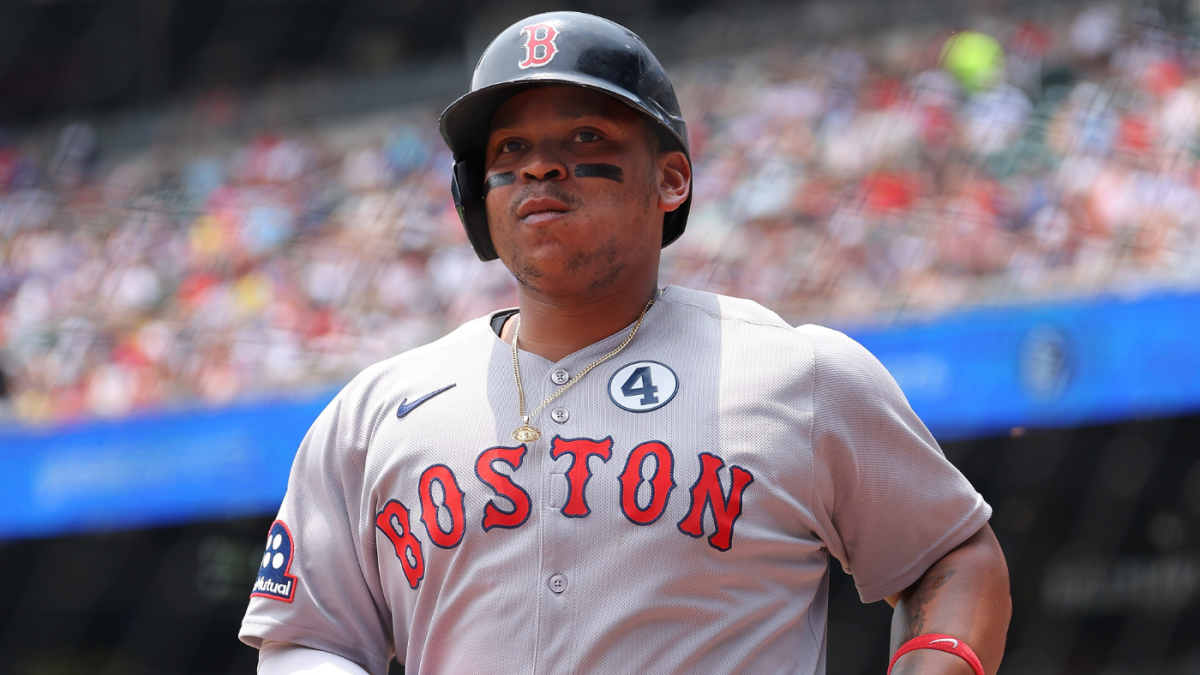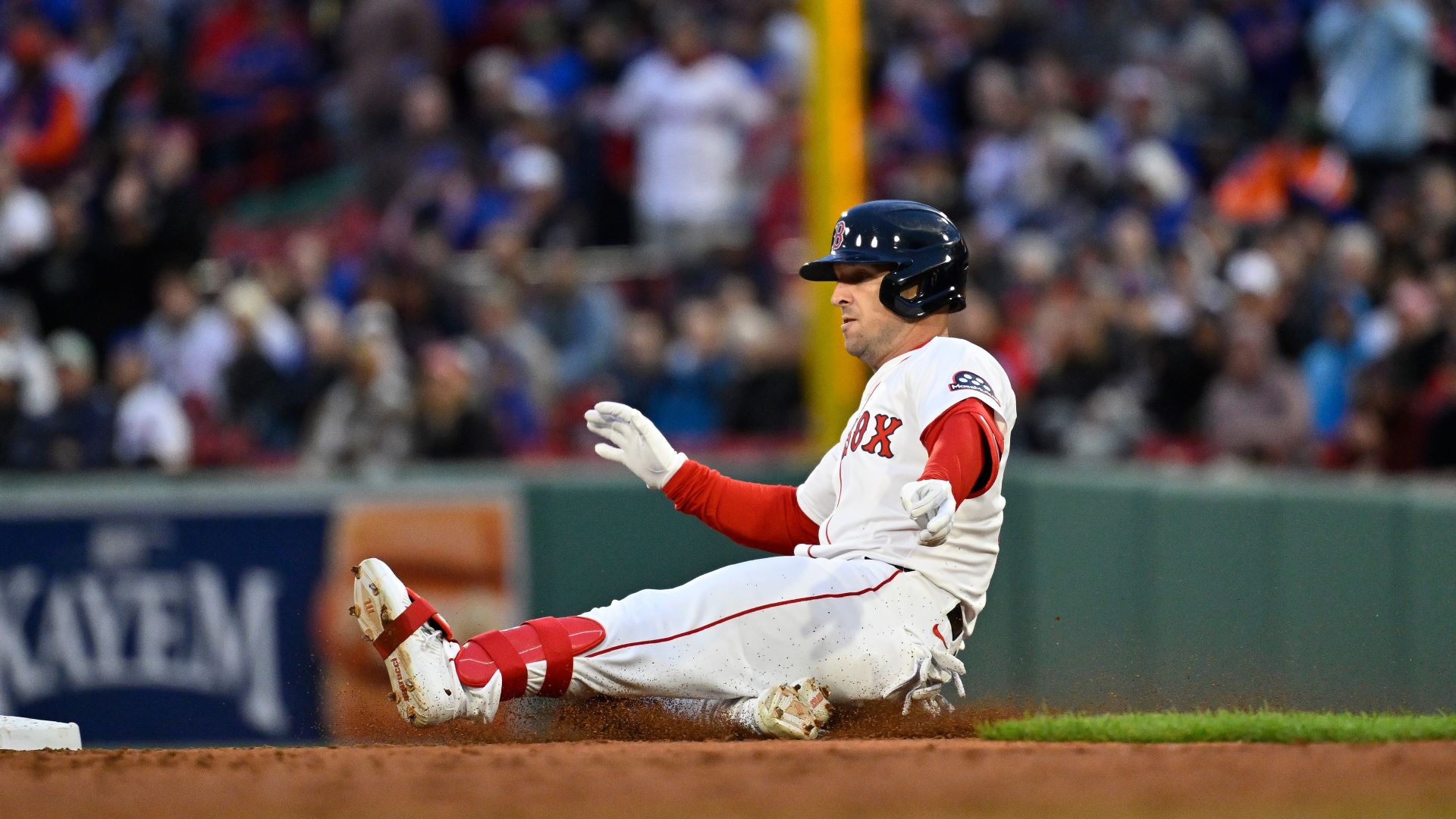This was different than the Mookie Betts trade. Bigger than letting Xander Bogaerts walk to San Diego and piece together his, let’s be honest, mediocre-to-date career with the Padres.
Less than two seasons into Rafael Devers‘ 10-year, $313.5 million contract extension, the Red Sox shockingly dealt the slugger to the Giants on Sunday night in exchange for some pitching and some prospects.
The Bogaerts exit? You could at least understand that one. The Red Sox, then led by former chief baseball officer Chaim Bloom, weren’t about to match the Padres when they threw $280 million over 11 years at him. That was defensible — though the club could’ve locked up the former shortstop for much less before he hit free agency. Now, Bogaerts might be stuck on one of the worst contracts in the game.
The Betts move, prompted by a penny-pinching ownership led by John Henry, was, in fact, indefensible because Betts is a generational player. One who was just a year removed from his MVP season in 2018 and World Series title on arguably the best Red Sox club in franchise history. Throughout the 2019 season, you knew it was coming. Betts didn’t budge on his asking price, The Sox didn’t budge either. You knew the inevitable was on the horizon.
But this one? This one cut Red Sox fans deep — not because it came after years of erosion, but because it felt like the final blow. And from the outside looking in, that is all understandable.
So what’s the Red Sox side of this? And how did this go sideways?
For starters, the Red Sox did not do right by Devers by failing to communicate that they were targeting Alex Bregman to play the position he’d patrolled — albeit underwhelmingly on defense — throughout his Red Sox tenure. As the team’s highest-paid player, he was at least owed that conversation.
Devers then showed up to camp out of shape. When asked if he’d consider moving off third base, he responded simply: “No. I play third.”
Ultimately, he did make the move to designated hitter, but it didn’t come without gripes.
According to a source familiar with the situation, Devers was asked to take grounders at both third and first base in spring training. He declined — and instead asked for a trade. That request set the wheels in motion for what became a growing divide between the Sox’s best player and the front office, led by chief baseball officer Craig Breslow.
Then Triston Casas went down in May with a ruptured left patellar tendon. Breslow approached Devers again — this time leaving manager Alex Cora out of it so he could play “good cop” in case Devers blew up. Breslow asked if he’d consider playing first. Again, Devers declined.
Devers then went public, taking a shot at Breslow and saying he expected someone running the team — especially a former player — to understand the game better.
“I’m not certain what (issue) he has with me,” Devers said through an interpreter of Breslow. “He played ball, and I would like to think that he knows that changing positions like that isn’t easy. I know I’m a ballplayer, but at the same time, they can’t expect me to play every single position out there. In (spring) training, they talked to me and basically told me to put away my glove, that I wasn’t going to play any other position but DH. Right now, I just feel like it’s not an appropriate decision by them to ask me to play another position.”
Suddenly, the once smiley and happy Devers became a black cloud in the clubhouse, and some within the organization wanted him gone.
Still, that’s something you assumed the club could work through. The Red Sox are no strangers to big personalities. They’ve dealt with the likes of Nomar Garciaparra and Manny Ramirez. Devers’ somewhat moody, prima donna personality doesn’t measure up to those two.
You figured the team could handle this, considering Devers is just 28 years old. Yet it was Bloom, not Breslow, who signed Devers to this deal — and even he had some trepidation. Ownership overruled him. They’d already traded Betts and knew it was a mistake. They’d let Bogaerts walk. They couldn’t dare let Devers go, too. Ultimately, Bloom complied with his bosses’ wishes.
Disregard the players the Red Sox got back in the deal (I know that’s tough to hear, Boston fans). The Red Sox see this as dumping a bad salary and contract for a player who produced every day but was set to age poorly, given some of his habits and the disconnect between him and the front office.
“It was time to turn the page,” one source told CBS Sports.
We’ll see what the Red Sox do with this blank slate.



